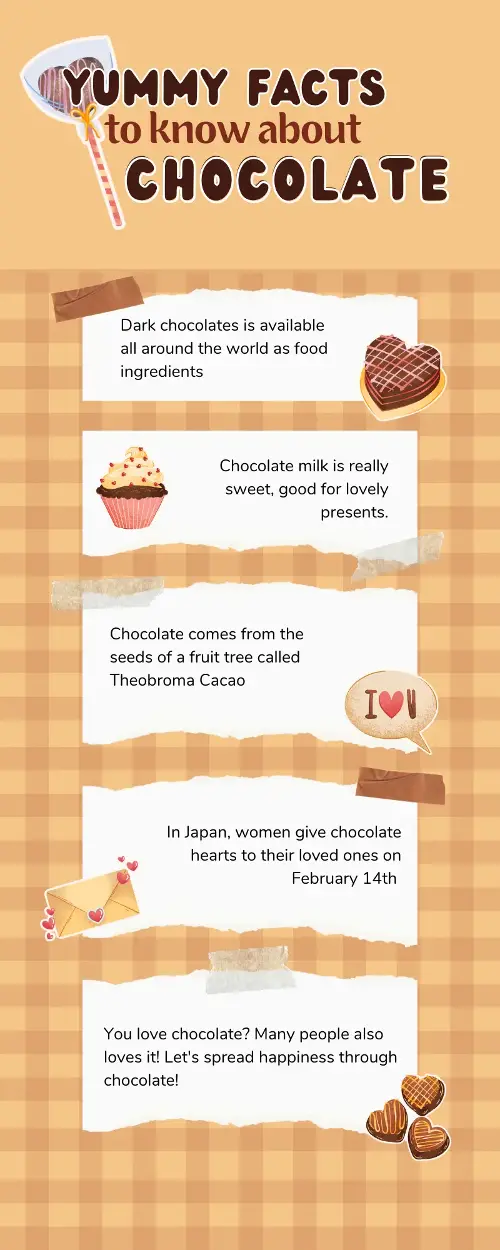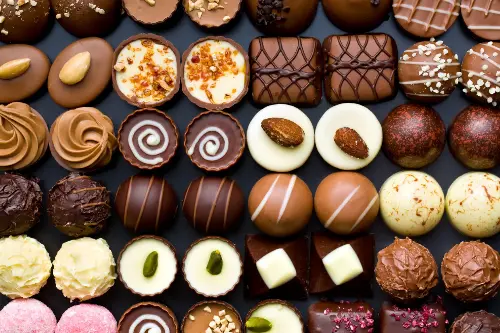
Welcome back to the "Did You Know" series, where curiosity meets discovery! We're thrilled to have you join us once again on this journey of uncovering fascinating facts, intriguing insights, and eye-opening revelations about the world around us. Get ready to fuel your mind and spark your imagination as we explore topics that surprise, inform, and inspire. Let's get started!
Chocolate, one of life's sweetest delights, has fascinated and pleased humanity for centuries. This delectable treat that melts in our mouths has a rich history full of intriguing facts that are as delightful as the confectionery itself. From its ancient origins to its role in modern society, let's indulge in some fascinating chocolate facts that might just make your next bar taste even sweeter.

From Bean to Bar
The Ancient Roots of Chocolate The story of chocolate begins with the ancient Mesoamericans, who were the first to discover the potential of the cacao tree. The Mayans and Aztecs revered this precious plant, using cacao beans not only as a form of currency but also to brew a bitter, frothy drink called xocolātl, which means "bitter water." Esteemed as the food of the gods, this chocolate drink was leagues away from the sweet confections we enjoy today, often mixed with spices, wine, or corn puree for an energising and ceremonial beverage.
The journey of chocolate from the tropical cacao tree to the wrapped bars we savour is a marvellous process. After harvesting, the cacao beans are fermented, dried, roasted, and ground into a liquid cocoa mass. This mass can then be made into cocoa solids and cocoa butter – the two primary ingredients in chocolate. However, it wasn't until the 1820s that Dutch chemist Coenraad Johannes van Houten invented the cocoa press, which helped separate cocoa solids from cocoa butter, thereby making chocolate cheaper to produce and more accessible. Moreover, the addition of milk to chocolate by Swiss confectioner Daniel Peter and Henri Nestlé in the 1870s revolutionised the industry, leading to the creamy milk chocolate that many adore today.
Chocolate's Global Journey
Though native to the Americas, over 70% of the world's cacao is now grown in Africa, with Ivory Coast, Ghana, and Nigeria as leading producers. The equatorial belt of West Africa provides the perfect conditions for cacao cultivation, with its plentiful rain and warm temperatures. A testament to our global economy, it's fascinating to ponder how a crop indigenous to one part of the world has become predominantly grown in another, then shipped worldwide to satisfy the cravings of chocolate lovers near and far.
A Bounty of Varieties
The variety of chocolate available is astonishing and its types are defined by the proportion of cocoa they contain. From dark chocolate, which boasts a high percentage of cocoa and a rich, intense flavour, to white chocolate, which contains no cocoa solids but is made from cocoa butter, sugar, and milk, there's a type of chocolate for every palette. Whichever variety one prefers, the complexity of chocolate's flavours can rival that of fine wine, with connoisseurs able to detect notes ranging from nutty and floral to fruity and spicy.

Healthy in Moderation
In moderation, chocolate holds several health benefits, especially dark chocolate, which is packed with antioxidants such as flavonoids. Studies have shown that dark chocolate can improve heart health by lowering blood pressure and improving blood flow. It also contains stimulants like caffeine and theobromine, but in lower levels compared to coffee, offering a suitable pick-me-up without the intense jitters.
Cultural Impact and Celebrations
Chocolate's influence on culture and celebrations cannot be understated. It has become a near-universal symbol of love and indulgence. Special occasions like Valentine's Day and Easter are closely associated with chocolate gifts and treats, no doubt helped by savvy marketers but also by the treat's inherent appeal and versatility. Moreover, chocolate has inspired a global industry, with chocolate festivals, specialised chocolate shops, artisan chocolatiers, and museum exhibits dedicated to its history and production.

The Love for Chocolate is Universal
The global demand for chocolate is a testament to its universal appeal. An average British person is estimated to eat approximately 7.5 kg of chocolate per year, and it is said that the Swiss consume even more, making them some of the biggest chocolate lovers in the world. These numbers speak volumes about chocolate's place in our daily lives and culture, as a treat that comforts us, delights our senses, and often brings us together with others.
In conclusion, chocolate is more than just a delightful treat for our taste buds; it is a fascinating product with a rich history that continues to evolve. From its ancient origins to its role in modern-day culture and celebrations, chocolate holds a special place in the hearts of people around the world. So, the next time you unwrap your favourite chocolate bar, remember that you are partaking in a centuries-old luxury that once graced ancient rituals and royal palaces – a piece of history that you can savour one delicious bite at a time.
